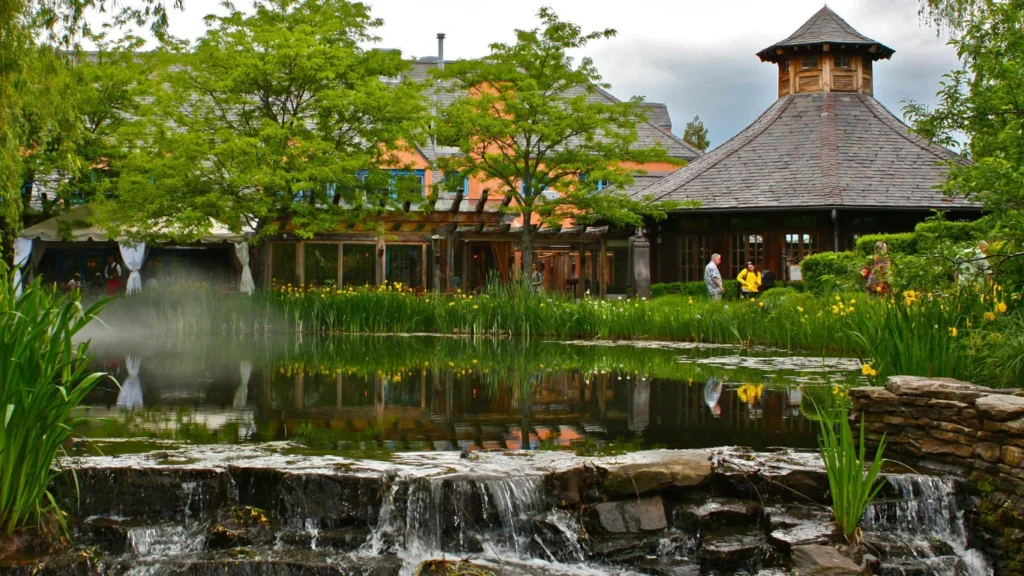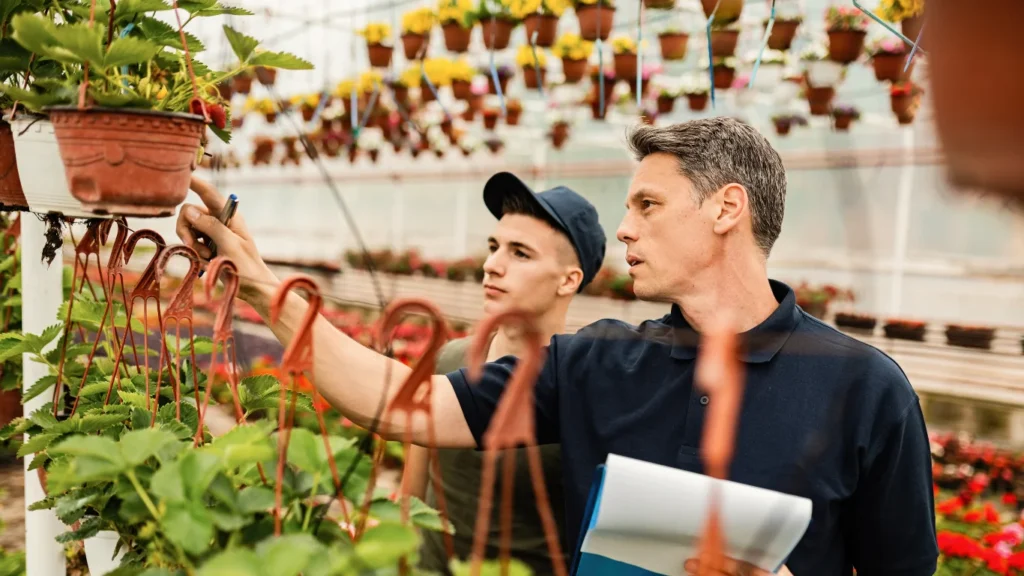Creating a beautiful and thriving garden is both an art and a science. In today’s world, where outdoor spaces play an essential role in relaxation and aesthetics, having a reliable garden guide like Homenumental can make all the difference. Whether you are a beginner or an experienced gardener, Homenumental offers insights into gardening techniques, plant care, soil management, and landscape design. This garden guide helps transform your ordinary backyard into a green sanctuary filled with color, life, and tranquility. Gardening is not only a hobby—it’s a way to reconnect with nature, relieve stress, and add beauty to your home.
Concept of Garden Guide Homenumental
The concept of garden guide Homenumental revolves around providing complete information and expert tips to make your garden more sustainable and aesthetically pleasing. It focuses on helping gardeners design spaces that balance functionality and beauty. From choosing the right plants for different climates to understanding soil types and irrigation systems, the Homenumental garden guide simplifies the process for everyone. The guide encourages eco-friendly practices, which include composting, organic gardening, and reducing chemical use. This ensures that your garden remains healthy, self-sustaining, and environmentally responsible while adding charm to your home surroundings.
Planning Your Garden Space
Planning is the first and most important step in gardening. The garden guide Homenumental emphasizes careful planning before you start planting anything. A good plan involves analyzing your available space, understanding sunlight exposure, and determining the soil quality. You also need to decide whether you want a flower garden, vegetable patch, herb area, or a mix of all. Planning helps in maintaining a balanced look and ensures that every plant has the right conditions to thrive. Proper spacing prevents overcrowding, improves air circulation, and makes your garden look more organized and welcoming.
Choosing the Right Plants
Selecting the right plants is crucial for a successful garden. The Homenumental garden guide recommends considering your local climate, soil pH, and water availability before making any choices. Native plants are often the best because they adapt easily and require minimal maintenance. For beginners, it’s better to start with hardy species that grow well in most conditions. You can mix perennials, annuals, and shrubs to create a dynamic garden that stays colorful throughout the year. It’s also wise to understand companion planting—how some plants benefit each other when grown nearby. This technique enhances growth and prevents pest infestations naturally.
Soil Preparation and Improvement
Soil quality determines how well your plants grow. The garden guide Homenumental focuses strongly on soil preparation and improvement techniques. Good soil should be rich in organic matter, well-drained, and aerated. Before planting, loosen the soil and remove stones or debris. Adding compost or well-rotted manure increases fertility and boosts microbial activity. Testing your soil’s pH is another essential step; most plants prefer a slightly acidic to neutral pH. Based on results, you can add lime or sulfur to adjust it. Proper soil maintenance ensures strong root development and a lush garden that flourishes year-round.
Watering Techniques and Irrigation Systems
Water is the lifeline of every garden, but overwatering or underwatering can harm plants. The garden guide Homenumental advises gardeners to adopt efficient watering techniques that conserve water while keeping plants hydrated. Drip irrigation systems and soaker hoses are excellent choices for targeted watering. Early morning or late evening is the best time to water since it reduces evaporation. Mulching also helps retain soil moisture and minimizes weed growth. Consistency is key; irregular watering can stress plants and affect their growth. With the right irrigation system and schedule, your garden can stay green and healthy with minimal effort.
Importance of Sunlight and Shade
Sunlight plays a vital role in photosynthesis and overall plant health. The Homenumental garden guide highlights the need to understand how much sunlight your garden receives daily. Some plants love full sun, while others prefer partial shade or complete shade. Observing sunlight patterns helps you decide where to place each plant for optimal growth. For example, vegetables like tomatoes and peppers need at least six hours of sunlight, while ferns and hostas thrive in shaded corners. Adjusting your garden layout based on sunlight ensures every plant gets what it needs without suffering from excessive heat or lack of light.
Organic Gardening Practices
Organic gardening is one of the core principles in the garden guide Homenumental. It promotes using natural methods for fertilization and pest control. Instead of chemical fertilizers, gardeners can rely on compost, bone meal, or seaweed extract. These organic alternatives enrich the soil without harming beneficial insects or pollinators. Pest management can be handled through natural predators like ladybugs, companion planting, or neem oil sprays. Organic gardening not only benefits your plants but also contributes to environmental conservation. It makes your garden a safe and healthy space for children, pets, and wildlife to enjoy.
Pest and Disease Management
Dealing with pests and diseases is a challenge that every gardener faces. According to the Homenumental garden guide, prevention is always better than cure. Regular inspection helps detect early signs of trouble before they spread. Crop rotation and proper spacing are simple yet effective ways to reduce pest attacks. If pests appear, use eco-friendly options such as insecticidal soaps or homemade sprays. Fungal diseases can often be avoided by watering the base of plants instead of the leaves. Keeping your tools clean and maintaining overall garden hygiene are vital steps in ensuring that your garden remains healthy and vibrant throughout the year.
Seasonal Gardening Tips
Gardening changes with the seasons, and the garden guide Homenumental provides advice for each stage of the year. Spring is the time for planting new flowers and vegetables, while summer demands regular watering and mulching to protect plants from heat. Autumn focuses on harvesting and preparing soil for the next cycle. Winter involves pruning, covering delicate plants, and planning for the upcoming season. Understanding how each season affects your garden helps you stay prepared and ensures consistent growth. This seasonal approach not only makes gardening easier but also keeps your outdoor space attractive year-round.
Landscaping and Garden Design Ideas

A garden is more than just plants—it’s a work of art. The Homenumental garden guide emphasizes design principles that make gardens visually appealing. You can use pathways, raised beds, and borders to create structure. Adding decorative elements like fountains, benches, or garden lights enhances the beauty and usability of your space. Color coordination is another important aspect; combining plants with contrasting hues can make your garden pop. Don’t forget to include focal points like trees or sculptures that draw attention. With a thoughtful design, your garden becomes a peaceful retreat that reflects your personal style.
Indoor Gardening and Container Plants
Not everyone has a large outdoor area, but that shouldn’t stop anyone from gardening. The garden guide Homenumental includes tips for indoor and container gardening. Potted plants, hanging baskets, and vertical gardens allow you to bring nature inside your home. Choose indoor-friendly plants like peace lilies, pothos, or succulents that require minimal care. Proper drainage, light exposure, and regular pruning are essential for indoor plants. Container gardening is also ideal for people living in apartments or small spaces. It provides flexibility to move plants around and create mini gardens on balconies or windowsills.
Eco-Friendly Gardening and Sustainability
Sustainability is at the heart of the garden guide Homenumental philosophy. The guide encourages gardeners to adopt eco-friendly methods that minimize waste and protect natural resources. Rainwater harvesting, composting, and using biodegradable materials are simple steps that make a big difference. Planting native species supports local ecosystems and attracts pollinators. Reducing plastic use and recycling garden waste further contribute to sustainability. Every small action adds up, helping to create a garden that is both beautiful and environmentally responsible. Gardening this way ensures that you are not just growing plants—you are nurturing the planet.
The Joy and Mental Benefits of Gardening
Gardening isn’t just about plants—it’s about people too. The garden guide Homenumental highlights how gardening can improve mental health and overall well-being. Spending time in nature reduces stress, anxiety, and depression. The act of nurturing plants brings a sense of accomplishment and peace. Gardening also encourages mindfulness, allowing you to stay present and connected with the environment. Studies show that even a few minutes of gardening each day can boost mood and creativity. Whether you’re planting flowers or vegetables, the simple joy of seeing something grow from your care is deeply rewarding.
Tools and Equipment for Every Gardener
Having the right tools can make gardening much easier. The Homenumental garden guide recommends investing in essential tools like trowels, pruners, gloves, and watering cans. Quality equipment not only lasts longer but also improves efficiency. Keeping tools clean and sharp prevents damage to plants and reduces the risk of disease transmission. For larger gardens, wheelbarrows and garden hoses are must-haves. It’s also helpful to store everything in an organized manner, such as on hooks or shelves in a shed. Proper tools combined with knowledge ensure a smooth gardening experience and a more productive garden.
Common Mistakes Gardeners Should Avoid
Even experienced gardeners can make mistakes, and the garden guide Homenumental helps you identify and avoid them. Overwatering, poor soil preparation, and planting at the wrong time are common errors. Another frequent mistake is ignoring plant spacing, which can cause overcrowding and disease spread. Using too many chemical fertilizers can damage roots and harm soil organisms. Forgetting to prune or neglecting pest control can also lead to poor results. By learning from these mistakes, you can become a more confident and successful gardener. Every setback is an opportunity to grow, just like your plants.
Conclusion
In conclusion, the garden guide Homenumental is your complete companion for creating a garden that thrives with life, color, and sustainability. From planning and planting to maintenance and design, every step becomes easier with this guide’s practical advice. Gardening is more than a hobby—it’s a connection to the earth that nurtures both nature and the human spirit. By following the tips and techniques shared in this guide, you can cultivate a garden that enhances your home’s beauty and improves your well-being. Remember, every seed you plant today brings joy, peace, and a greener tomorrow.
FAQ’s
What is the purpose of the garden guide Homenumental?
The purpose of the garden guide Homenumental is to provide detailed knowledge and expert gardening tips to help people create sustainable and visually appealing gardens. It guides users through every aspect of gardening, from soil preparation to plant care and design.
How does Homenumental help beginners in gardening?
Homenumental simplifies gardening for beginners by offering step-by-step instructions, easy plant selection tips, and practical advice on maintenance. It helps users avoid common mistakes and grow plants successfully, even with limited experience.
Can I use the Homenumental garden guide for indoor gardening?
Yes, the Homenumental garden guide covers indoor and container gardening techniques. It suggests suitable indoor plants, explains how to manage light and watering, and helps create beautiful mini gardens in small living spaces.
Does the Homenumental guide promote organic gardening?
Absolutely. The garden guide Homenumental strongly promotes organic and eco-friendly practices. It encourages using compost, natural pest control methods, and sustainable gardening habits that protect the environment and enhance plant health.
Is Homenumental suitable for different climates and soil types?
Yes, the guide provides universal principles adaptable to different climates and soil conditions. It offers advice on plant selection, irrigation, and soil improvement to ensure successful gardening in any environment.


